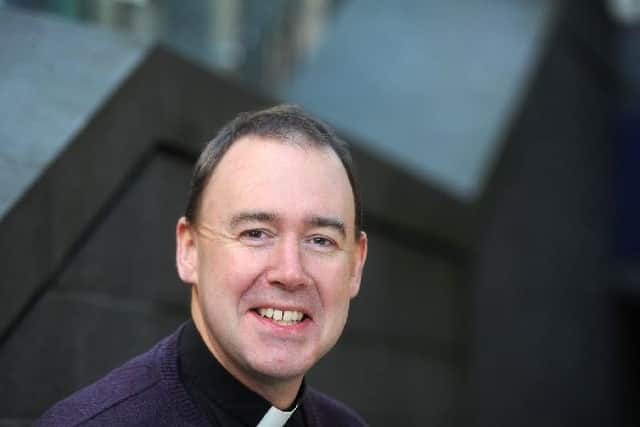Unspeakable human suffering of Holocaust must never be repeated


I always imagined they were in the middle of nowhere, yet we were in the heart of an industrial town. I should have realised a labour camp would be near a centre of industry, but reality left me reeling. This was no particularly unusual place after all.
We could have been anywhere. Only a few strands of electrified wire separated hell from the world; unspeakable human suffering was only meters away from the everyday transactions of commerce and of relationships. I was struck forcibly how terror makes no specific demand or requirement; it isn’t limited or determined by geography and can emerge anywhere. I knew that is true of holiness, but to be faced with how the same is true of horror was immensely disturbing.
And my struggles with the place did not end there.


Advertisement
Hide AdAdvertisement
Hide AdParticularly as we walked around the edge of Birkenau, I was struck by the physical beauty of the scenery: crisp snow on the ground, beautiful blue skies and deer chewing bracken, the perfectly ordered birch trees on the horizon that have given the village of Birkenau its name.
It required effort to focus on what was actually before us, rather than being drawn away to what might be just beyond.
Perhaps that is partly because the sites are about people and yet the people have disappeared - most through the chimneys of crematoria with faint traces of their existence contained, if at all, in scandalous ponds of ash.
But I noted the way my mind and emotions resisted filling in the gaps by focussing on something else: searching to find goodness; to discover beauty or make meaning rather than allowing immersion in the realities of terror, murder, inhumanity and meaninglessness.
And what about hope?
Advertisement
Hide AdAdvertisement
Hide AdIt was a shock to hear how hope was used as a weapon of torture rather than as a means of grace; ‘step this way for a shower and you will be washed clean’ was a frequent invitation used to persuade crowds to enter the gas chambers.
The possibility of a different future, let alone a natural trust in the goodness of human nature, was hijacked and forged into yet another instrument wielded with skill and precision to control, manipulate and to influence:
Hope itself was taken captive.
Of course, the Nazi regime chose deliberately to forge deep channels of lies into the bedrock of truth and reality in order to control and manipulate. But I was left searching my own heart about the extent to which I resist facing the reality of darkness in my own life, in the life of the churches and organisations of which I am a part and in the world more widely, because to do so risks the cost, untidiness, potentially uncontainable demands of lament, of protest and of action.
Yet, surely, that is where hope is most alive.
Beyond fear and captivity lies the truth which may well demand everything and upset all I know and yet which also, indeed uniquely, offers life and freedom. Something of that life and freedom was glimpsed in stories we heard - of bread shared, of steps taken forward out of line, of self-sacrifice - not because people were in denial of what was involved or of what it might mean, but precisely because they had faced reality, had counted the cost and yet still moved and still spoke.
Advertisement
Hide AdAdvertisement
Hide AdSo, as we reflect on some of the most horrific events in human history and vow to ensure they are never repeated, the liberating gift of hope calls us away from fantasy and resources us to contend with the demands of reality; to see the world as it really is and, somehow to be truly human in the midst of it all.